A HISTORY OF THE WAR: CAUSES
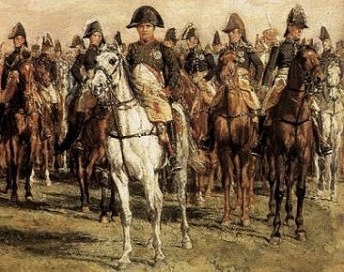
Napoleon Bonaparte was changing the face of the world, conquering country over territory over city. Napoleon set out his army to conquer Britain and acquire lands belonging to her. In 1793, he embarked upon economic warfare with Britain; giant against giant.
Napoleon begins on this dangerous form of warfare by attempting to block off Britain's exports in an effort to bankrupt her, leaving her coffers dry and forcing her to surrender to his will. It would not, however, be as simple as had been hoped. Britain fired back; Napoleon fired back. They exchanged trade restrictions and blockades furiously, Napoleon seizing any ships entering French ports from those of Britain and Britain forbidding any ships from trading with France or her allies or entering ports closed to her; Napoleon vows to seize any ships obeying the British orders, and Britain responds by blockading France and her allies as well as and countries closed to British trade and all trade goods from those countries were to be seized; any ship from France was to be taken as a prize and any neutral ships were forced to purchase licenses for their ships from Britain.
Throughout this ordeal, the U.S. was skirting around the restrictions by importing trade goods, such as coffee and sugar, from the colonies of France in South America and re-exporting them, with Britain not being able to prove their origin. The American Embargo Act was put into effect in an attempt to halt the actions of Britain and France against neutral ships, blocking them from American goods. This, while devastating, did not halt the restrictions.
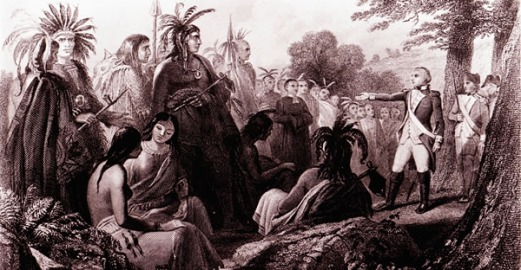
As American settlers continued on their march to the West, numerous treaties were forced upon the native peoples of the territories they were forcibly invading.
In the Ohio territory many Native people were displaced as a result of treaties which they neither consented nor signed, but which were signed by "chiefs" from other tribes. As a result, the land of the Shawnee people was signed out from under them by those who had no claim to the land.
Hostility took place between the Natives of the area and the encroaching settlers. The American press took opportunity after opportunity to vilify the people who were trying to protect their families and their lands and, as they supplied the warriors, the British. The British had greatly reduced the supplies and ammunition they supplied to the warriors annually in an effort to avoid further hostilities breaking out between the Natives and the settlers, but this did not alter the American mindset: the British were working with the Natives to defeat America and collect it as a territory and they must be stopped.
America accused the British of engaging in uncivilized warfare by inciting resistance among the Natives.
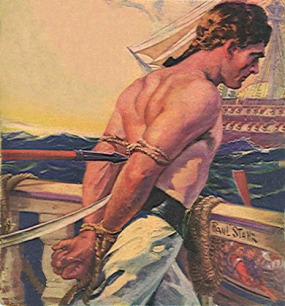
While at war with France, Britain used the time-tested practice of impressment to bolster the ranks of the Royal Navy. At times of peace, the Royal Navy was discharged in order to avoid paying the men unless necessary, and so it was necessary to impress sailors and merchantmen at times of war.
Many U.S. merchant ships were boarded with the express purpose of impressment and U.S. citizens, both born and made, were forced off their ships to serve in the Royal Navy in the name of the king.
By 1801, Britain had impressed 10,000-50,000 American citizens.
America saw this as an act of war.
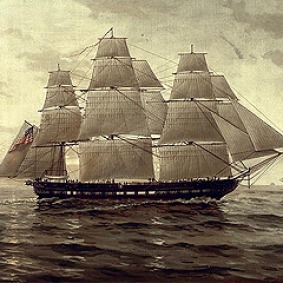
On June 22, 1807, HMS "Leopard" fired on USS "Chesapeake".
The attack was a response to men deserting British ships in Chesapeake Bay and seeking refuse in America, joining the crews of American ships.
HMS "Leopard" demanded that USS "Chesapeake" surrender Royal Navy deserters on the ship and gave a list of British ships they would have deserted. Barron, of "Chesapeake" knew that he had Royal Navy deserters on his ship, but also that they had not come from the ships listed by the British and so replied that there were no such men on his ship and prepared the ship for any action the British might take. Seeing that the "Chesapeake" crew was preparing for battle, HMS "Leopard" engaged the ship. After about fifteen minutes of battle, "Chesapeake"'s colours were struck.
The attack on "Chesapeake" outraged the American public; they screamed for war. Mobs of Americans harassed Royal Navy men on American soil and attacked British ships in American harbours. In response, on July 2, 1807, President Thomas Jefferson issued a proclamation denying the British access to American ports.
The U.S.A. demanded that amends be made for the actions taken by the HMS "Leopard" and that the British cease the impressment of American citizens and return their countrymen.
Britain refused to admit any connection between the "Chesapeake" incident and impressment and refused to discontinue impressing ships they pleased or return American citizens serving in the Royal Navy.
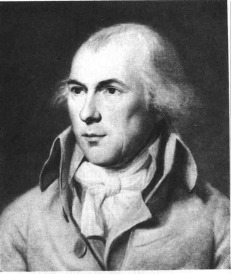
On June 18, 1812, President James Madison (pictured to the right) signs his name to a war declaration against Britain citing naval offenses and British encouragement of resistance among Western Natives.
